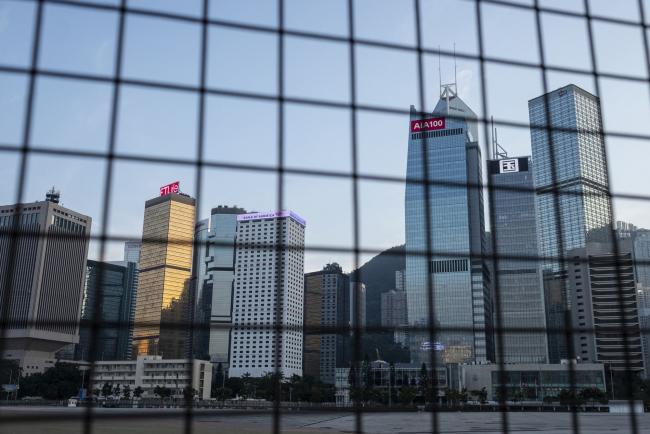(Bloomberg) --
As China awaits U.S. sanctions for cracking down on Hong Kong, recent murmurs in the agriculture markets have increased worries that a trade deal between the world’s two biggest economies could unravel.
Chinese imports of U.S. farm goods are a cornerstone of the phase one trade deal inked in January after a lengthy tit-for-tat trade war. Over nearly two years of talks, Beijing was careful to separate trade from political disputes with the U.S. over issues including the pro-democracy protests in Hong Kong and restrictions on Huawei Technologies Co. Ltd.
This week gave rise to questions of a shift: People familiar with the situation said that Chinese officials told state-run agricultural companies to pause purchases of some American farm goods, including soybeans, as Beijing evaluates a potential U.S. response over Hong Kong. There are some exceptions, one person said, and some transactions have still filtered through.
News reports of the order were likely a “trial balloon” as any halt would be a significant change in approach, said Jude Blanchette, Freeman Chair in China Studies at the Center for Strategic and International Studies in Washington. He added that he was “very skeptical” Beijing would meaningfully stop the purchases.
“It’s Beijing showing that they can act, not an action in itself,” he added. “The separation of political and economic statecraft could end if the U.S. pushed China to the point where restraint stopped looking like reasonable behavior, and starting looking like weakness.”
Retaliation Threats
China had agreed to buy U.S. farm goods worth about $36.5 billion for 2020 as part of the deal, one of the few tangible outcomes President Donald Trump has been able to tout after imposing punitive tariffs that drew retaliation, roiled both economies and upended global trade. However, the coronavirus outbreak and already weakening demand meant China only managed to import $3.35 billion in American agricultural products in the first three months of the year, the lowest for that period since 2007.
On top of that, bilateral relations have also deteriorated dramatically since the January signing. Fights are brewing across a range of issues, from responsibility for the virus and 5G networks to human rights in Xinjiang and territorial disputes in the South China Sea.
China has repeatedly threatened to retaliate against the U.S. for putting restrictions on its companies and citizens, though it has not specified what measures it will take. Beijing has up till now refrained from using economic coercion to hit back against the U.S., a strategy it has employed against other smaller countries who have raised its ire.
Last month, it banned shipments of meat from some Australian exporters and slapped tariffs of more than 80% on Australian barley after the country called for an inquiry into the origins of the coronavirus. China also restricted canola imports from Canada following its 2018 detention of a Huawei Technologies Co. executive, who is currently fighting extradition to the U.S. In both cases, China cited legal and health violations and didn’t connect the restrictions to the disputes.
“China has the right to adopt trade measures to let its trade partners cool their heads,” said Mei Xinyu, a researcher at a think tank under China’s commerce ministry, repeating the government’s stance that the Trump administration’s moves against Hong Kong endanger China’s national sovereignty. ”You cannot talk business with someone who stabs your back.”
The Global Times, a Communist Party tabloid, ran a story on Monday citing Chinese experts who said a pause in agricultural imports could be preparation to retaliate against U.S. measures, and such a move would be “unsurprising.”
Political Climate
Still, officially China still says it’s committed to the deal: Premier Li Keqiang last month reiterated a pledge to implement the phase one agreement during high-profile annual legislative meetings in Beijing. But some Chinese analysts argued that was contingent on both sides maintaining political stability.
“The implementation of the phase-one deal requires a peaceful and stable atmosphere, yet the U.S. has been hurling new insults non-stop at China every a few days,” said He Weiwen, who previously served as a commercial attache at the Chinese consulates in New York and San Francisco. “China does not want to politicize the trade deal, but politics will definitely deal blows to the trade deal.”
Targeting agricultural imports would hurt American farmers, a key voter bloc for Trump as he heads toward an election in November. They have already received billions of dollars in aid that would cushion the impact of any restrictions.
And China currently faces a shortfall of at least 20 million tons of soybeans for the fourth quarter and first two months of 2021, the peak season for U.S. sales, because of lower supply from Brazil compared with last year. It may not be feasible for China to impose an extended halt of U.S. soybean imports given other major suppliers have restricted grain exports because of the pandemic.
Still, Trump faces fierce domestic criticism over his response to protests raging across multiple cities over racial discrimination and police brutality and is still struggling to contain the coronavirus that’s killed more than 100,000 people. In the current climate, U.S. officials could be pushed to take greater risks leading to further escalation, according to CSIS’s Blanchette.
“The U.S. faces simultaneous domestic and international crises,” he said. “We are in for a very worrying couple of months.”
©2020 Bloomberg L.P.

